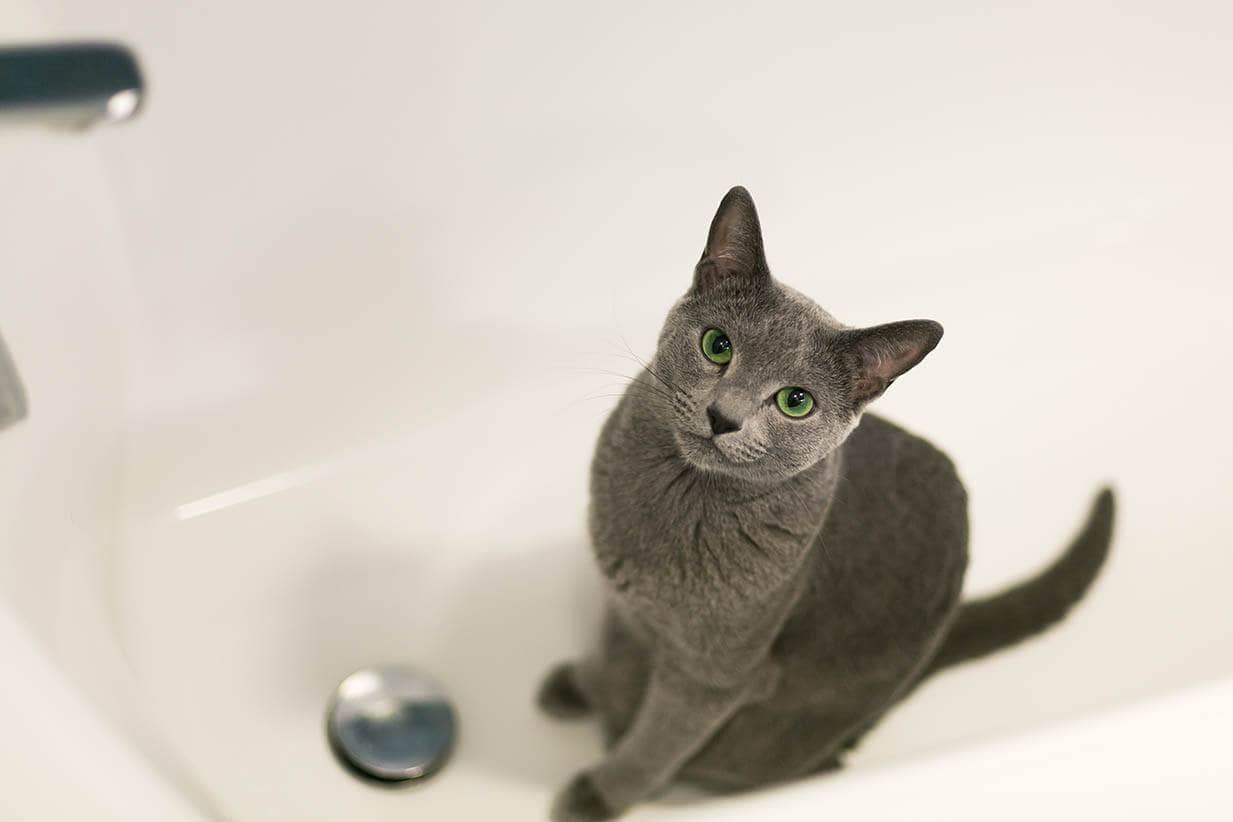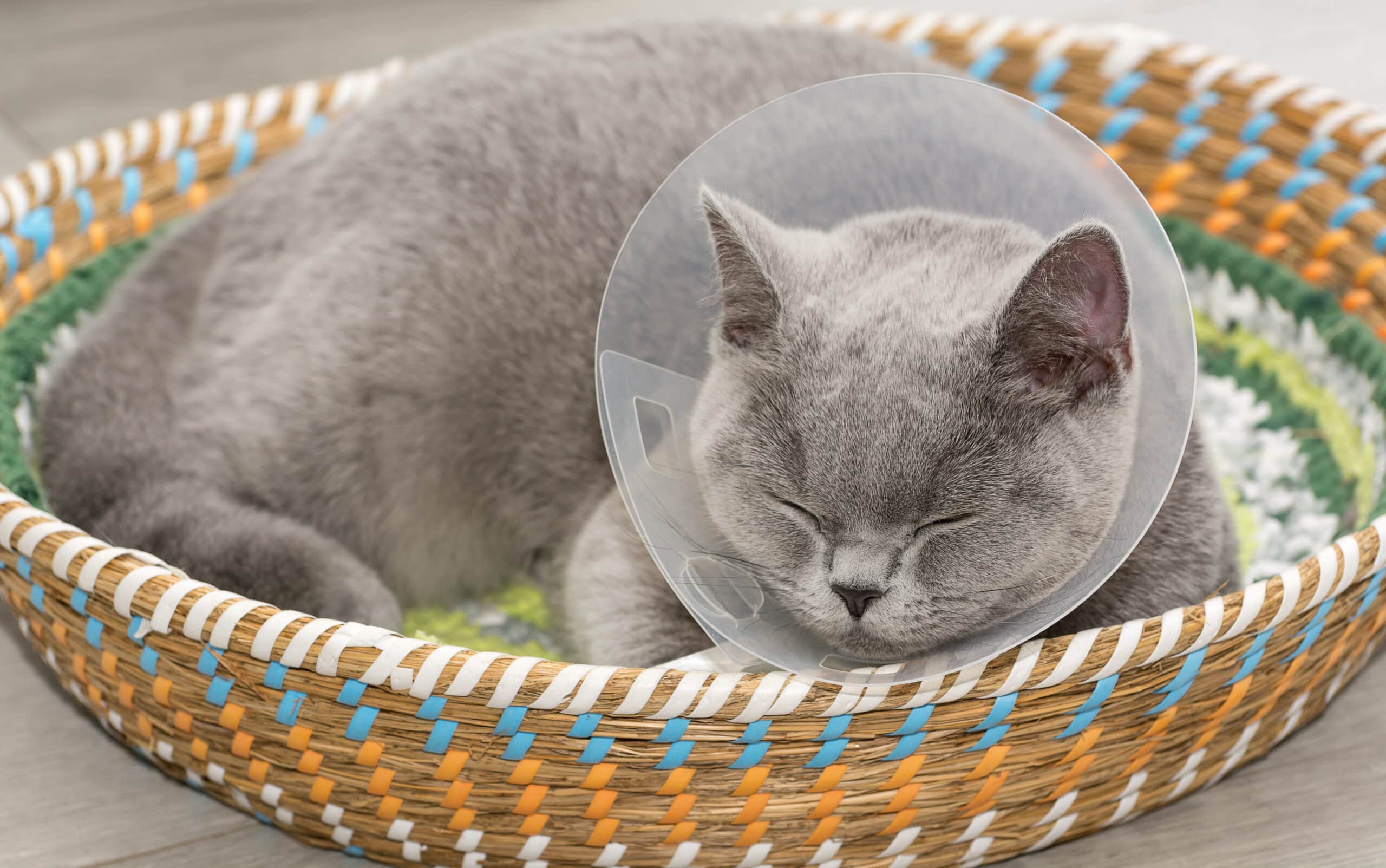VET APPROVED

The information is current and up-to-date in accordance with the latest veterinarian research.
Learn more »Click to Skip Ahead
While their tiger cousins like to go swimming, domestic cats are not known for their love of water. If you’ve ever tried to bathe your cat, you probably have the battle scars to show for it.
Cats typically groom themselves. In fact, most cats are somewhat obsessive about keeping themselves clean, minimizing the work that you need to do. Their barbed tongues are particularly adept at cleaning dirt and debris from their coats. So, do cats need baths?
The short answer is no, cats don’t typically need baths, but sometimes, your cat may need help cleaning themselves. If they’re especially dirty or smelly, suffering from parasites, or struggling with mobility issues, a bath may be the only way to get your cat clean.

At Home Grooming Products
While cats are generally good at grooming themselves, they occasionally require assistance to remain clean and look their best. Selecting the right products, like cat-friendly shampoo or pet wipes can significantly enhance the grooming experience, so it’s wise to invest in quality products to make the process easier for both you and your cat.
There are a variety of effective, pet-friendly grooming products you can use at home to help make cleaning your pet a breeze and keep them smelling fresh. Here are our top picks.
| Image | Product | Details | |
|---|---|---|---|
For Bathing
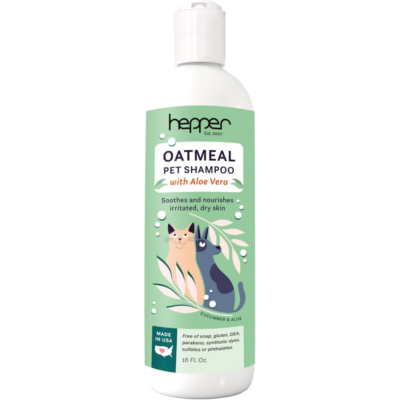 |
Hepper Oatmeal Pet Shampoo |
|
Check Price |
For In-Between Baths
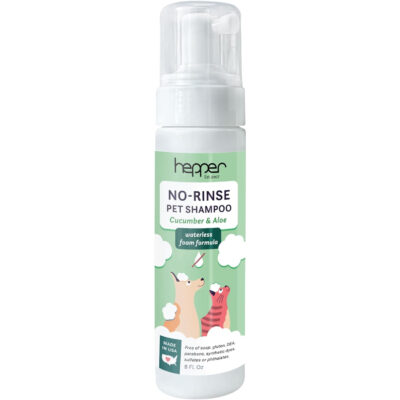 |
Hepper No-Rinse Pet Shampoo |
|
Check Price |
For On-The-Go
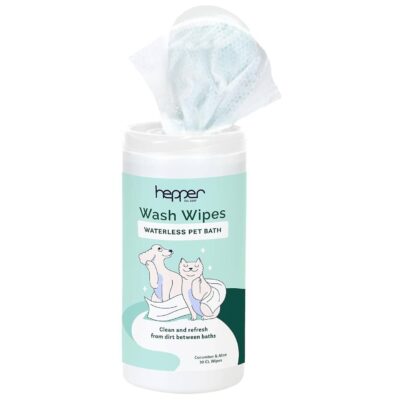 |
Hepper Wash Wipes |
|
Check Price |
At PangoVet, we've admired Hepper for many years, and decided to take a controlling ownership interest so that we could benefit from the outstanding designs of this cool cat company!

When Your Cat Needs a Bath
Your cat is likely to take care of their own grooming needs. If your cat has long hair, like a Persian, they may need occasional baths to supplement their self-grooming.
Conversely, hairless cats like the Sphynx cat may need occasional baths to remove dirt and oils that can be absorbed in their skin. Of course, frequent bathing can strip the vital oils away, so it’s important to only bathe them when needed.
Cats may also need some help with grooming if they suffer from a medical condition. Elderly cats with arthritis or joint problems may struggle to groom themselves, and routine bathing can help them stay clean and comfortable. This is also true of obese cats or cats with mobility issues that limit their range of motion.
If you need some more pointers or advice on when to bathe your cat, calling a vet is a great option.
Finally, routine bathing can help a family member with a cat allergy. If someone in your household suffers from cat allergies, giving your cat a bath one to two times a month may help reduce dander and the irritants that aggravate allergies.
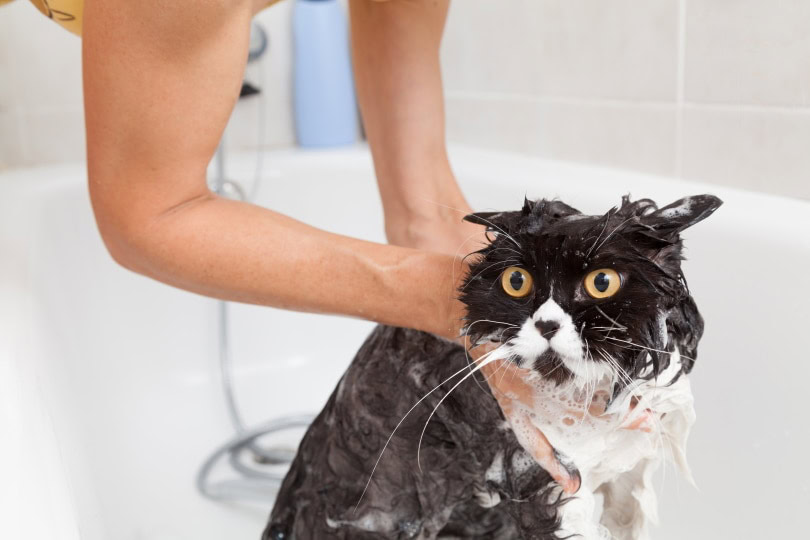
How to Bathe Your Cat
Even if your cat is really dirty, sometimes a good brushing with a waterless shampoo or spot cleaning with a damp rag is enough. Consider these options to avoid giving your cat a full bath.
- Simply Brush - Waterless cat shampoo / dog shampoo means no rinsing required. Forget the bath!...
- No Soap - This fresh-smelling dry shampoo for dogs and cats is free from soaps, glutens, dyes, DEA,...
- Good for Nervous Pets - You don't want your pet to be afraid of getting clean, so this pet waterless...
- Use a cat-safe shampoo. Formulas for humans and dogs can have ingredients that are dangerous for cats, so make sure your shampoo is specifically designed for them.
- If possible, trim nails before bathing. This can help you avoid painful scratches and marks if your cat gets upset during the bath.
- Prepare the bath area in advance. Gather your shampoo, washcloth, water pitcher (for rinsing), and a clean, dry towel.
- Brush your cat before the bath to get dirt, debris, and loose hair off and to remove tangles or mats.
- Fill the sink or bathtub with just a few inches of tepid water, then either wet your cat with the pitcher or a washcloth. Avoid your cat’s eyes, nose, and ears.
- Apply shampoo directly to your washcloth, then onto your cat to reduce rinsing. You don’t need to scrub your cat vigorously—just lather a bit.
- Rinse your cat with the pitcher or a clean, wet washcloth.
- When finished, wrap your cat in a warm, dry towel, and rub their fur to help with drying.
- Once all the heavy water is gone, let your cat run off on their own so they can finish the job.


Summary
Most cats can be obsessive about self-grooming and do all the work for you, so you don’t need to give them baths. However, there are occasions when your cat will be dirty, smelly, or unable to groom themselves, and you’ll need to help out with a bath. Hopefully, that won’t be too often!
Related reads:
Featured Image Credit: Irina Borodovskaya, Shutterstock
